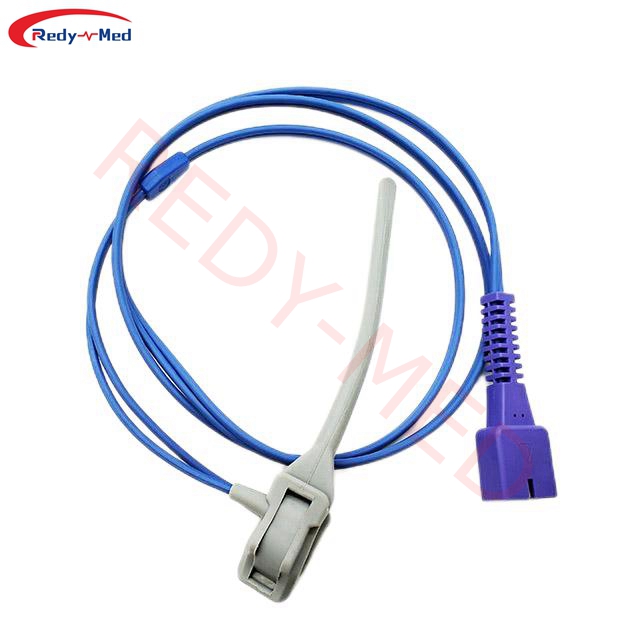
SPO2 probe: an essential tool for monitoring baby’s blood oxygen
2024-03-21 00:04:44
The Importance of SPO2 Probe in Monitoring a Baby's Blood Oxygen Levels

The SPO2 probe is an essential tool used in medical settings to monitor a baby's blood oxygen levels, ensuring their well-being and prompt intervention if any abnormalities are detected. This article aims to provide a comprehensive overview of the SPO2 probe, its function, and significance in monitoring a baby's blood oxygen levels.
1. What is an SPO2 probe?
An SPO2 probe, also known as a pulse oximeter, is a non-invasive medical device that measures the oxygen saturation level in a person's blood. It is commonly clipped onto the finger, toe, or earlobe, allowing healthcare professionals to monitor the baby's blood oxygen level continuously and in real-time.
2. How does an SPO2 probe work?
The SPO2 probe works on the principle of light absorption. It emits two beams of light, one red and one infrared, through the baby's skin. The amount of light absorbed by the blood is then measured by the probe. Based on this information, the SPO2 probe calculates the oxygen saturation level and displays it on a screen.
The SPO2 probe also measures the baby's heart rate simultaneously by analyzing the changes in blood volume with each heartbeat. This additional parameter helps healthcare professionals assess the overall cardiovascular health of the baby.
3. Why is the SPO2 probe crucial for monitoring a baby's blood oxygen?
The SPO2 probe plays a vital role in monitoring a baby's blood oxygen, especially in neonatal intensive care units (NICUs) or during complex surgeries. Here are some reasons why:
Early Detection of Hypoxia: Hypoxia, a condition characterized by low blood oxygen levels, can have severe consequences for a baby's health. The timely detection of hypoxia with the help of an SPO2 probe allows healthcare professionals to intervene promptly and administer appropriate medical interventions.
Monitoring Respiratory Distress: Babies, especially premature infants, are susceptible to respiratory distress syndrome. The SPO2 probe enables continuous monitoring of their blood oxygen levels, helping healthcare professionals assess the effectiveness of respiratory support and adjust it accordingly.
Assessing the Need for Supplementary Oxygen: In some cases, babies may require supplemental oxygen to maintain optimal blood oxygen levels. The SPO2 probe provides real-time feedback on blood oxygen saturation, allowing healthcare professionals to determine the need for and adjust the dosage of supplemental oxygen.
Conclusion
The SPO2 probe serves as a crucial tool for monitoring a baby's blood oxygen levels, enabling early detection of hypoxia, facilitating the assessment of respiratory distress, and guiding the administration of supplementary oxygen. Its non-invasive nature, ease of use, and real-time feedback make it an essential component in neonatal care and complex surgeries. The SPO2 probe plays a significant role in ensuring the well-being of babies and facilitating timely interventions when necessary.
Get the latest price? We'll respond as soon as possible(within 12 hours)




